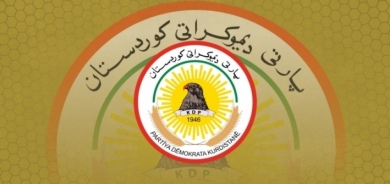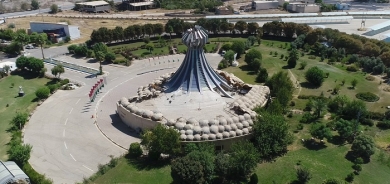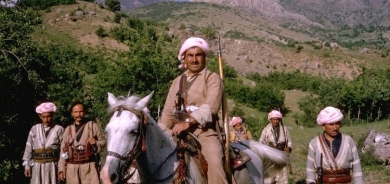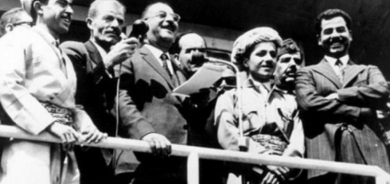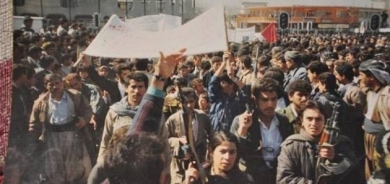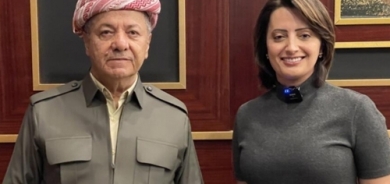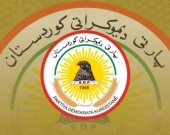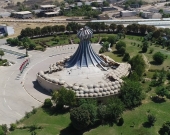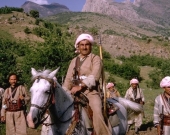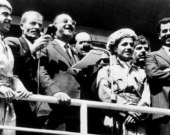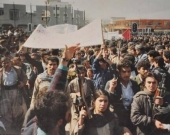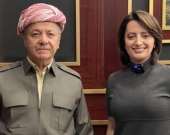Violating the Iraqi Constitution Imposes Autocracy and the Return of Dictatorship
Although passing the Oil and Gas Law by the Iraqi government is against the constitution, it is also incompliance with the 19 points of the Kurdish paper.
Tariq Harb to Gulan Magazine:
The Constitution is our reference to solve the problems. The Articles 112 and 113 of the constitution refers to that “oil field administrations are in common with regions and provinces, it is not only within the authority of federal government.
The main concern of people in the Arabic and the Middle Eastern countries is the toppling of the dictatorship regimes and to write a new constitution, thinking that after the dictatorship regimes; a new constitution can end their problems and to move towards democracy. As we look at the situation in Iraq, it has been 8 years after the downfall of the dictatorship regime and 5 years since the new constitution has been written, more than 80% of the Iraqis have voted for it, but there still the danger of autocracy to rise once again, returning back to dictatorship and ignoring the constitution threatens the future of Iraq. The current Iraqi government pursues part of the constitution which serves its interests and ignores what doesn’t do so. This is the reason of having the danger of sectarian, ethnic, and civil war to take place in Iraq again. The key word is; when the other countries are trying to topple their dictatorship regimes, there is the danger of reappearing of dictatorship and autocracy in Iraq again.
Approving Oil and Gas Laws Autocratically
Last week the Ministerial Council of the Iraqi government autocratically approved the oil and gas law draft and passed it to the Iraqi parliament. Regarding approving this legislation we interviewed Mr. Muhsin Saadun, parliament member within the Kurdish alliance bloc in the Iraqi parliament, exclusively responded to Weekly Gulan Magazine as the following: “the oil and gas law is the product of the struggles and strives of all of the Iraqis. Currently; Iraq is one of the richest oil countries, and 50 years have passed yet the Iraqis aren’t the beneficiaries from this wealth. We want to draft the oil and gas legislation according to the constitution. In 2007; all the participated parties approved the oil and gas legislation draft in the ministerial council, in which the Kurdish Bloc played an important role in drafting the oil and gas legislation, then it was passed to the Shura Council of the State to be passed to parliament afterwards. But the law was re-paraphrased in this council and few Articles been changed, in which the Kurdish alliance objected it and asked for the law which was approved in the Iraqi ministerial council on February 2007”.
Ignoring the Kurdish Paper of the 19 points
Regarding to the shaping of the new Iraqi government and participation within the government, the Kurdish Alliance prepared a paper of 19 points so that its participation in the government will be based on these points. According to these 19 points; it was expected to have the Iraqi prime minister to comply with them which were all for implementing the Iraqi constitution. Regarding to approve the oil and gas legislation by the ministerial council autocratically and to what extend does it violate these 19 points of Kurdish paper and the Iraqi constitution, Muhsin Saadoon in his responds also added that; “the Kurdish Alliance objected the additions made by the Shura Council, that is why the issue remained still and the Representative Council waited the legislation to be passed and discussed then vote for it. But the government didn’t pass the law which was included in the agreement and was applied for in the Kurdish paper. The paper contained 19 points; one of the points asks to approve the oil and gas legislation according to the last agreement, but the government didn’t fulfill its commitment and didn’t pass the legislation to the parliament. The committee of the oil and gas law prepared a suggestion paper accordingly that the committees has the right to make suggestions, the committee consisted of representatives from all the parliament’s blocs, they participated in the suggestion to the oil and gas legislation and read it before the feast, many of the parliament blocs considered it as a good suggestion except for the State of Law Bloc whom they objected it providing that the legislation should be addressed by the government, and they left the meeting afterwards. So the reading didn’t proceed for more than 26 articles of the legislation. Their departure wasn’t right, because it is the parliament has the right to submit and suggest legislations, and it is a constitutional right. After we started again after the feast, we were shocked after we saw a new legislation which has been quickly discussed in the ministerial council in time many of the ministers were not in that meeting. We haven’t seen this copy yet, and according to the government; this has been passed to the parliament, but the chairman of the parliament claimed that they haven’t received any copy of this legislation. Therefore; the tension is pretty much clear that the government intends to submit the law and imposes it on the parliament so as to be approved. The Oil and Gas law is an important law, if it is not approved in a right manner, it is a dangerous issue. Because according to the Article 111; the oil and the gas belong to the Iraqi people in all the regions and the provinces. Secondly; according to the Article 110; the government doesn’t include enough authority regarding oil, the other authorities are mentioned like foreign policy, defense, and statistics which are almost 9 authorities which the government can impose it on all the provinces. But the authority regarding oil is not an exclusive one, it is true that this limit has been mentioned in the constitution, but regions and provinces should also participate in exploring oil and gas in the future. That is why we objected that copy which is going to be passed by the government to the parliament; we comply with by the law of February 2007 and support the oil and gas law which has been discussed within the parliament. That means that we are supporting the oil and gas law of February 2007 and the oil and gas committee’s legislation, any other legislation suggested to the parliament can convince all of them easily, that is the point of the conflict.
The Iraqi constitution allowed the regions and the provinces to have role in the oil and gas policies
However; according to the Iraqi constitution collecting the revenue lies within the framework of the federal government’s authority, but the Iraqi constitution hasn’t given full control of oil and gas law to the government, regarding to this legal issue, we interviewed Mr. Tariq Harb and he exclusively responded to Weekly Gulan Magazine as the following: “the constitution is our reference to solve the problems. Regarding to this issue, the Article 111 from the Iraqi constitution reads that; the oil and the gas belong to the Iraqi nation in all the regions and the provinces. What do we understand from this sentence? Of course; the article mentions “Iraqi nation”, who is the Iraqi nation? Does Kurdistan regional government represent the Iraqi people in their provinces? Or represents Iraqi government in Baghdad? On the other hand; if we read other articles like the Articles 112 and 113 which explains with more detailed that the constitution granted authority to the provinces that explore oil along with their role in evaluating the policies. Lets to speak honestly; the contract is the “cake of oil” and as you may also know that nowadays; the oil companies, especially the famous ones, never pay even 1 extra Dollar outside the contract, and the main problem is the way the contracts were signed, including; signing the contracts to the authority of the federal government or giving it to the regions and the provinces? In addition; how the contracts would be? Regarding to this issue, the ministerial council voted by majority to include the signing of contracts to the authority of the federal government, and the Kurdish Alliance thinks oppositely. Today; the “ball” is in the representative council’s field, when they can implement the law, or to add or omit things from it. But it ended-up with a political conflict due to economical interests. So, how the constitution can solve this problem? The constitution mentions that there should be a shared administration between the federal government and the regions and provinces that extract oil. That means that; neither the federal government nor the regional governments can run it alone. So that’s why the decision cannot be in the hand of one aspect. So; according to the Articles 112 and 113 I would say; “yes”, the Kurdish alliance is entitled to ask for a shared administration.
Violating the Constitution for Authoritarian
As we discuss the details of the oil and gas law with academics, experts, and specialists; they immediately think that the Kurdish bloc doesn’t want to deliver the oil revenues of Kurdistan to the federal government in Baghdad, and is why they postpone the oil and gas law. But the main problem regarding to the delay of this legislation is that the federal government in Baghdad doesn’t want to submit to the constitution, the Iraqi constitution is a modern and a democratic constitution, and if it is not implemented, then no other drafts can substitute it. Regarding to the non-implementation of the constitution, the Prof. Dan Reiter, and regarding to the acts done by the current government in Iraq, he thinks that the current government is much similar to the Russian government which moves away from democracy day after day, the Professor Reiter have responded to our question as the following: “The problem is everyone agrees that democracy is a good thing, almost everyone. But, it is very difficult to get there; it is very difficult to actually achieve a sustainable democracy. Another good example is Russia; where like Iraq, Russia was ruled by dictatorial government and has a lot of oil. In the 1990s it moved toward democracy and now in 2000s it moves away from democracy. So it is a very common and disturbing path that a country tries to become democratic and a process finds it to be very difficult and sometimes takes a step backward. This is part of what is very difficult about becoming democratic, it is not so hard to write down a constitution on a piece of paper, but often what is very difficult is to get a constitution to be accepted by everyone, to be accepted by all groups and by new politicians. Sometimes new politicians do not want to do what the constitution wants them to do. And sometimes it may take many years for everyone to accept what we call in US the rule of law, where the constitution is the law and you accept it even if it forces you to do things that you do not want to do. So that is; developing the rule of law is the most difficult aspects of becoming a stable democracy. Yes I know, it is of great concern to Kurds, it is also of great concern to Americans, because all Americans want Iraq to become a stable democracy. What is troubling is that Iraq may be similar to Bosnia, where like Iraq Bosnia has 3 ethnic groups, there was a lot of conflict in Bosnia between ethnic groups in the 1990s, and they established democracy after the conflict. But they still, like Iraq, have difficulties in having all 3 groups cooperating with each other. So it is a very uncertain future in Iraq”.
Erosion of Fear which Dictatorship May Return
Federalism with strong authority regions
The main problem of Iraq is that the federal government cannot act according to what the constitution allows; because within the Iraqi constitution, the regions have wide range authorities. So; when the Iraqi government violates this right, it gives the sense that the government is willing to move ahead towards autocracy or returning back to dictatorship. Regarding to this issue; we interviewed Prof. Mark N. Katz, professor of politics and government at Mason University, and specialist on Russia politics and international relations of the Middle East, he responded exclusively to Gulan Magazine as the following: “Obviously; constitution is only good if it is functional, and that is certainly what happens when the new constitution comes in that there is the expectation that it is going to be followed, and then if it is not followed then obviously it leads to tremendous lack of trust and conflict and so, you know I think that democracy is improving difficult in Iraq country which hasn’t experienced it and which has suffered so much of authoritarian rule, so democracy will be difficult. The trouble is that whatever its difficulties I think for the government itself to return to authoritarian manner of rule this won’t succeed in that, I think eventually Iraqis find that if they like it or not they have little choice but to turn to democratization but at that point there may be other changes, now it seems the most likely change is that certainly the Kurdish region is going to become independent, whether recognized or not recognized, it is going to operate as an independent country. You know I think it is a real possibility, I think that is a definite possibility, certainly if the government in Baghdad adhesion an authoritarian manner then I thinks the others are going to come to a conclusion that they’re better off outside the Iraq. And I think that the only solution for the country as they versus Iraq as well as some others in the region is a federal solution, which is powerful and regional governments, and then the national government has more limited authority and this is probably the best solution. Well I think that you know the best guarantee against authoritarian will be a federal state with strong local regional government, the overly centralized government is something that the ineffective and also causes nervousness and discontent, so it is a very bad idea. One doesn’t understand is that why the government in Baghdad wants to do that, they think that they know better and these locals are doing something different and they have to be unified. But really it is better to let people do things on their own way. And I think you get form the best of system if you have strong democratic governments which people can participate in, a weaker central government is actually promote stability, that is what we have in the United States that our national government has severe limits, but state governments are very strong and has a clear delineation of what each can do and so I think that this is what Iraq would benefit from it as well. And, unfortunately it appears that either Iraqi people will learn it by experience that they need to change or it is going to be too late that there is going to be so much division in Iraq, just there will be no enough good will to make the country run as a unified state. In the end I’m saying that: I think that Iraq is a country which has an enormous potential, not only does it have enormous petroleum resources, but it has educated intelligent hard working population. In other words, it means it has the ingredients in there to be a successful country. But what is needed, is the different communities to cooperate and accommodate one another. Unless they are going to do that, they are not going to succeed. The Americans are leaving, although they did a very good job, but now it is up to the Iraqis to make this work.” “
Risks After Violating the Constitution
The Kurds have never hid the fact that the constitution is the connecting bridge between Kurdistan region and Iraq; if the constitution is violated, then the Kurds will no longer have connection with Iraq. Regarding to this topic; Mr. Muhsin Saadoon, a Kurdish alliance member say: “There was a coalition between the political components during writing of the constitution and the current conflict is that everyone, within the framework of the constitution, tries to get what the constitution has allowed to. So; it is not possible to deprive any of the regions or the provinces from this right which is related to a large wealth and which the future of the country directly depends on it. We also say that the oil revenues should be for all the Iraqis, but administering the exploring of oil and the companies in the regions and the provinces should be in contact with these regions and provinces, if not many problems can occur, what has let Iraq united is federalism in which the oil belongs to all Iraqis. Right now, Basra is the richest province in terms with oil extraction; you cannot just say that the oil is to be used for Basra only and deprive the Iraqis from it. So; does the Kurdish oil, we don’t say that we don’t want to share the oil revenues of Kurdistan region, but the revenue is for all the Iraqis, but as the companies head to the oil rigs of the region or the provinces, the government of the region or of the provinces should permit them and be aware of them. This is a constitutional right of any province or region, in terms with reducing the unemployment rate in the region or province by these companies. So; the federal government can’t have full administration of this issue while the constitution hasn’t allowed it. Generally; I’m saying that, by our participation, the continuation, and our will, through the federal government we have united with Iraq and have participated in the constitution, the parliament and in the government as well. We think that Iraq is united and the federalism is our right, we often see other provinces ask to form new regions. This is one of our dreams, that one day, a united country, a Kurdish state, emerges on the map. But currently; the international situation in Iran and Turkey and also the Arab revolutions obliged us to wait. Today; we serve in Iraq, we are part of Iraq, and we defend all the Iraqis in which we currently don’t want to stay away from these issues.
Translated by: Sheban Ferhad

